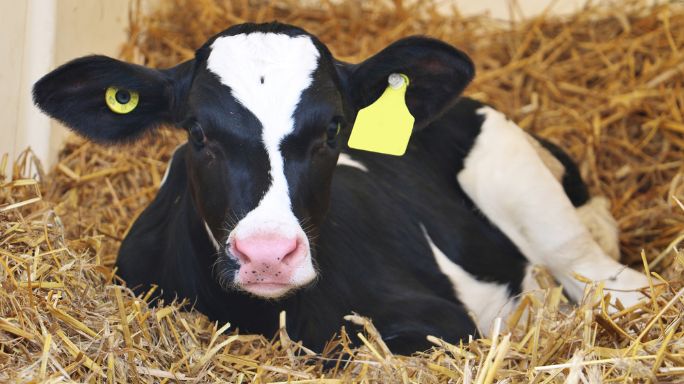Coccidiosis in Spring born calves

With calf sheds well-stocked and intensively used at the moment there is heightened risk of coccidiosis for Spring-born calves.
Initially, calves with a Coccidiosis infection may show no clinical signs, but their daily growth can be reduced and they will spread the parasite in their dung, leading to build-up of infectious oocytes in the calves’ environment.
Calf growth can be reduced by almost 20% due to Coccidiosis
A common cause of diarrhoea in Irish dairy calves diagnosing and limiting the spread of Coccidiosis early is key. Many farmers associated Coccidiosis with a bloody scour but this is rare. The aim of Coccidiosis control is not to focus on the calf that shows clinical signs of sickness, like scour, but include all the calves in the contaminated environment.
Calves can become infected when housed in sheds, and after turn-out to paddocks, contaminated with the dung of other infected calves, often carried over from last year. Coccidiosis is usually seen in young calves from three weeks of age, but can just as well affect autumn-born calves of 6 months old.
Good hygiene and good management are vital to achieve effective control.
The best way to diagnose coccidiosis is to test a faecal sample through your vet to identify if coccidiosis is causing an issue. Treating affected calves with coccidiostats is most effective two weeks after exposure to the parasite to prevent scour and build up immunity.
Calves showing signs of scour will need supportive therapy with painkiller and electrolytes to help rehydration and recovery.
Top tips to prevent and treat coccidiosis
- Clip cows tails to keep teats and udders clean
- Don’t leave calves in the calving pen too long
- Feed good quality colostrum
- Keep bedding in calf pens dry and topped up
- Keep calves batched by age and don’t mix batches
- Keep feed and water troughs elevated off the ground and free from contamination
- Prevent mucky areas from developing outdoors
- Don’t reuse contaminated dedicated calf paddocks from last year for calves this year
- Use the correct disinfectant the end of calving season
- Treat affected animals with coccidiostats
- Keep calves hydrated by using electrolytes
Providing feed a supplement such as Proviflor C, included in Rumencare calf nut, supports calves when exposed to coccidia and helps prevent a growth check in calves from coccidiosis.
First Published 2 April 2024
Tagged with: Dairy
